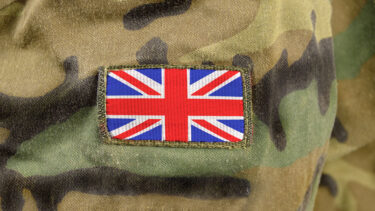Discipline and Uniform Transcend the Military


Gary Wilkinson
Regional Director
I’m a huge believer that every aspect of civilian business has something to learn from the military: the importance of uniformity and discipline go far beyond the armed forces. The discipline of the Army is of course there for a reason. It ultimately comes down to life or death, but to maintain this level of discipline you need continuity and this continuity, I believe, can be a really effective secret weapon in any business but particularly for the housing maintenance industry.
When I left the Army I had been serving public duties as a Sergeant Major responsible for the Changing of the Guard at Buckingham Palace after two years as Colour Sergeant training Officers at Royal Military Academy Sandhurst. This was a career highlight for me and one that taught me a lot. I trained people from all walks of life, whose backgrounds were immaterial to their position in the Army. As Officers in training they were all equal and as such, they needed to work together with uncompromised discipline towards a common goal. I think that is such an important life lesson and its one that has never left me in my 14 years since leaving the military.
In the Army you have basic drills where everybody understands the core function of the unit and their role within that. These drills take things back to basics and remind everyone of their responsibilities and their part in the wider objectives. Its a fairly simple but very powerful approach that ensures no one loses sight of what the unit needs to achieve. My time in civilian business since 2004 has taught me that it is no different. By adopting this same work ethic and by performing basic drills, you become a cohesive and productive team. In our industry, we manage a large workforce of operatives who carry out an extremely important job. In order for those teams to work at its best, we need to ensure we dont lose sight of what we do on the ground. We must keep going back to basics and remind ourselves of our objectives. In doing so, we focus on our teams and equip them with the necessary skills to focus on our customers. So long as the team is working well, the end result will be the positive outcome we are striving for.
Of course singing the virtues of working as a team is nothing ground-breaking and cultivating a strong team is well known and well practiced across all industries. But I think there is a risk that this can often get overlooked, particularly when everyday busyness takes over. When were busy, its very easy for our priorities to shift, for our attention to be turned elsewhere and for our focus to become compromised. To combat this we must always take a step back, take stock of what we are trying to achieve and make sure everyone is fulfilling their duties within the core function.
I joined the army when I was 16, at an age when I had everything to learn about life and about myself. It taught me to challenge everything, to look at things and consider every detail and to ultimately question if there is a different or dare I say better way of doing things. And it is this that attracted me to Wates. Having worked for a number of housing associations, I have sat on the clients side of the table many times. I have seen first-hand the importance of meaningful team work and the need to keep things fresh through innovation. A business that provides a front-line service must always keep on its toes, remain disciplined and always embrace challenges.
Gary Wilkinson joined Wates as Regional Director in January 2019 and is responsible for the business repairs and maintenance portfolio in the south, overseeing a team of over 500 staff delivering services for over 25 clients.
Gary joined the British Army as a Private Soldier and climbed the ranks to Colour Sergeant in 2001 and Sergeant Major in 2003. During his career Gary served five operational tours in Northern Ireland and Bosnia and also completed an Open University degree in business.
After leaving the Army in 2004, Gary became a lecturer at a college in Northampton, working with the probation service. Qualifying in Facilities Management, Gary later became Assistant Director of Development for Circle Housing (now Clarion) overseeing 63,000 properties. Gary has held a number of director positions at housing associations where he has developed strategies to enhance procurement, operations and compliance.